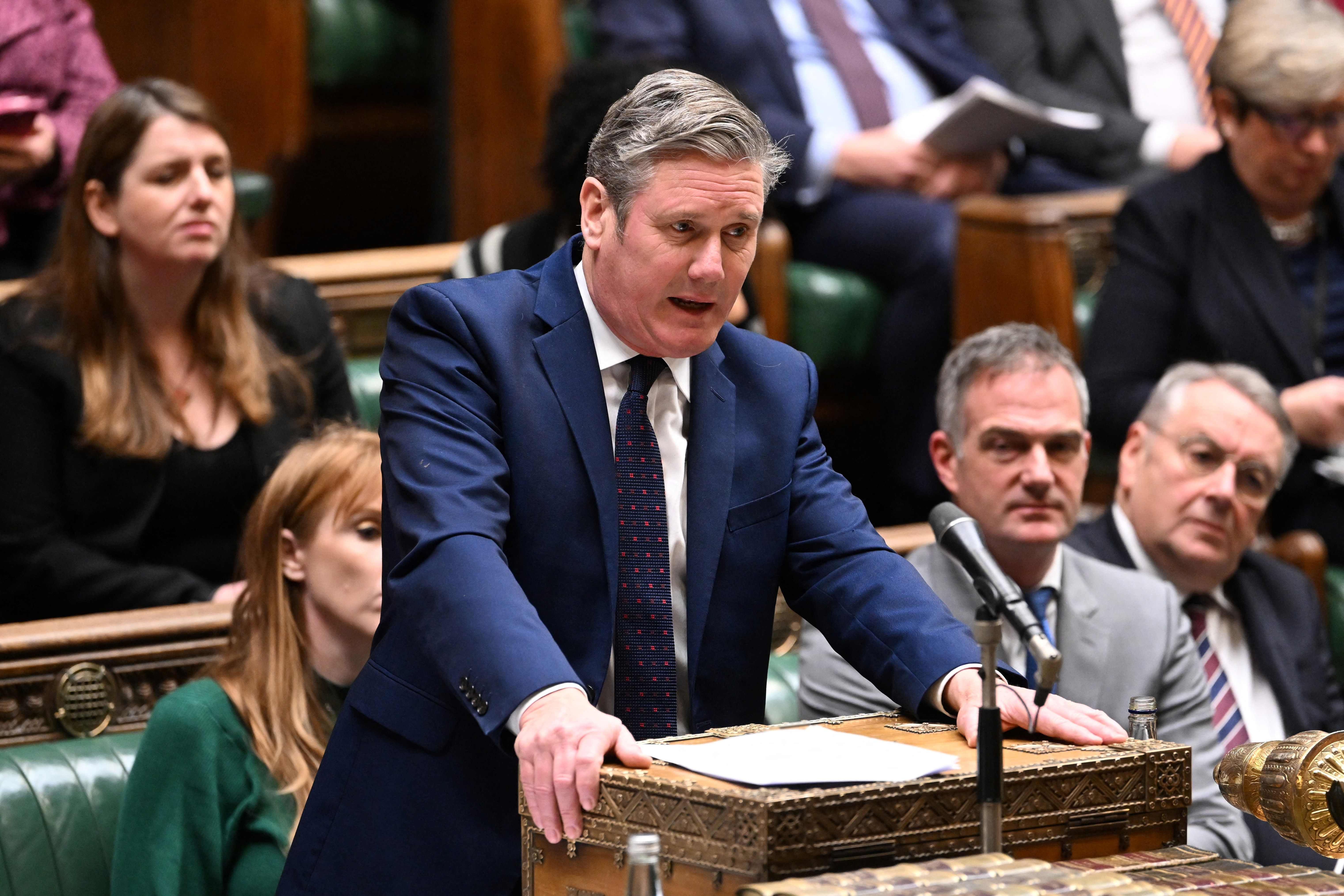Sunak and Starmer both think they know where voters stand on the nurses’ strike
Prime Minister’s Questions was about as inconclusive as Steve Barclay’s meeting with the Royal College of Nursing on Monday, writes John Rentoul


Keir Starmer privately describes the NHS as his party’s “comfort zone” and vows that, important though it is, it will not be the main theme of Labour’s assault on the government. But needs must.
He didn’t want to ask about Rishi Sunak’s plans for asylum, because he broadly agrees with them. So he paused to acknowledge the tragedy in the Channel, and moved on. He didn’t want to ask about the economy, because this morning’s inflation figures suggest that the corner might be being turned.
So he asked about tomorrow’s nurses strike. “All the prime minister has to do,” he said, which sounded promising. Who could have guessed that there was a single, simple solution? “All the prime minister has to do to stop that happening would be to open the door and discuss pay with them.”
Sunak said that ministers had met the unions, and said that nurses had had a better deal than most public sector workers last year, when they were exempted from the pay freeze.
Starmer responded with the case of a boy from Chester who had had his gall bladder operation cancelled twice, and repeated that “all” the prime minister needed to do “is meet the nurses”.
Sunak said that this was “a political formula for avoiding taking a position”, which was accurate, although he also said that Starmer hadn’t said what he thought of the demand from the Royal College of Nursing (RCN) for a 19 per cent pay rise, which wasn’t accurate. Starmer has said that he thinks 19 per cent is too much. By saying that ministers should discuss pay, the Labour leader has said, in effect, that the 4 per cent awarded by the independent pay review is too little. But he hasn’t said which percentage would be right – and he doesn’t need to, because he is not a party to the negotiations.
That meant that Prime Minister’s Questions was about as inconclusive as Steve Barclay’s meeting with the RCN on Monday. You could say that, after five questions from the leader of the opposition, the two sides broke up without agreement.
Starmer thinks that the public will agree with him that it would be reasonable to pay the nurses a little bit more, and that the public probably thinks that a Labour government would be better at managing the public sector unions than the Tories. Sunak thinks that the public will also agree with him that it is reasonable to resist excessive pay demands.
That was all that PMQs was about. Everyone watching will have a view, and no one watching will have their minds changed. And they certainly won’t have their minds changed by the rhetorical flourishes with which the basic argument was dressed up by both sides.
Starmer said non-dom status should be scrapped, as if that would pay an inflation-matching pay increase for 300,000 nurses for longer than about an hour and a half, and demanded that Sunak “choose between nurses and non-doms”.
Sunak accused Starmer of not being “strong enough to stand up the unions”; then he recycled one of Boris Johnson’s lines, saying that “if we’d listened to him we’d still be in lockdown”; before ending up with the last refuge of a Tory prime minister on the defensive, in Labour Wales, where A&E waiting times are worse than in England.
At this point, Starmer switched subject for his final question, his last before Christmas. This prevented the prime minister ending their exchanges with a prepared soundbite, and allowed Starmer to pose as a leader above the political fray. Despite having just been engaged in partisan fisticuffs, he now paid tribute to the unity of the House of Commons in support of the people of Ukraine.
Sunak was forced to say, “I appreciate his comments on Ukraine”, very much through gritted, grinning teeth.






Join our commenting forum
Join thought-provoking conversations, follow other Independent readers and see their replies
Comments